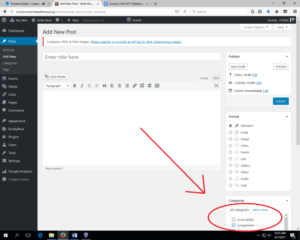HUT 101: Art of Theatre
Fridays, 1:00-4:25pm, room C426
Professor Jay Polish
Assignment # 3 — Collaborative Play Pre-Production
https://tinyurl.com/hutassign318
We have written our monologues and we have written our own plays and we have studied the play of a highly practiced, highly skilled playwright. We have explored set design and costume design and the way that choreography moves with heart of the play itself. We have explored performance and relationships with audience and the structures of rich character and plot development. And now, for our final project, we will be bringing these elements together.
In groups, we will be collaboratively working to pre-produce a play: to do this, we will be returning to Anon(ymous) by Naomi Iizuka and A Raisin in the Sun by Lorraine Hansberry. Together with your groups, you will be research, writing, working creatively, and presenting (respecting your Personal Traffic Lights, of course) on the following aspects of what it would take to pre-produce your version of these plays (each group will work on a different play) —
- Set design;
- Choreography;
- Lighting and sound;
- Costume design;
- Outreach and marketing; and
- Concept and casting.
Together, you will develop and present a detailed plan for each of these six elements of pre-production.
Who, for example, will your casting call be seeking to audition (for number 6)? How, specifically, do you plan to interpret and produce the storms described in the script (for number 3)? How will each character dress in different scenes (for number 4)? Who is the target audience for your production, and how will you get these people into the seats (for number 5)?
You will answer these questions and more with your group. The questions I’ve posed above are examples of the kinds of questions you need to answer: but part of this project will be coming up with important questions about each of the six elements together, and answering them together.
One week after class ends (on June 8th), you will present your pre-production plan to the class (and celebrate your amazing accomplishments this term!!)!!

